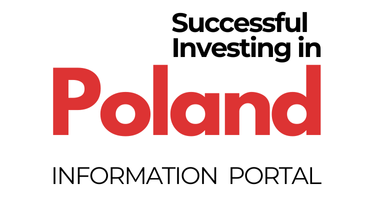UniCredit’s return to Poland after several years of absence is one of the most significant strategic moves in the domestic banking sector. The Italian group, one of Europe’s largest financial institutions, is no longer entering as the owner of a large bank, but as an entity building its business almost from scratch. From the perspective of the market and investors, this is an event that may modify the competitive landscape in the long term and create new opportunities for both individual and corporate customers.
Why is UniCredit returning now?
UniCredit was present in Poland for many years as the main shareholder of Bank Pekao. Its exit from the country, which took place during a period of weaker financial condition of the group, is now considered by its management to have been a misguided decision. UniCredit’s situation is now much better: the bank has high profitability, a stable capital position and a clearly defined growth strategy in the Central and Eastern European region.
The Polish economy remains one of the fastest growing in the European Union, and its long-term growth potential continues to exceed that of most Western European markets. From the perspective of a bank that wants to build real scale in Europe, returning to the Polish market is a natural direction for growth. Hence the decision to re-enter — this time with a different model and different ambitions.
Acquisition of Aion Bank and Vodeno – technological and operational goal
In spring 2025, UniCredit finalised the acquisition of Aion Bank and the technology company Vodeno for approximately EUR 376 million. The scale of these entities is not large, especially when compared to the largest institutions operating on the Polish market. However, the key point is that the modern technology platform on which these institutions operate has been acquired.
Vodeno is one of the most advanced banking-as-a-service (BaaS) providers in Europe and cooperates with Revolut, Shopify, InPost and Ant Group, among others. Aion, on the other hand, operates on a cloud-based system, which allows for significantly lower operating costs compared to traditional banks. For UniCredit, this means the opportunity to accelerate its technological transformation, which in large institutions is often a lengthy and costly process.
In practice, Poland is to serve as one of the key technological hubs for the entire group. This is a rare case in which a global bank uses the local market not only for commercial expansion, but also as an operational and development base.
Operating model – combining European scale with a digital-first approach
UniCredit is launching its operations with 11 branches in major cities and plans to increase this number to 40. Compared to Polish universal banks, this is not much, but the strategy does not involve building a wide network of branches. The core of the model will be digital banking, supported by specialised advisory teams.
The offer includes, among others:
- personal and business accounts with no fees or additional conditions,
- an all-in-one app integrating financial and investment services,
- instant international transfers,
- currency exchange at competitive rates,
- quick credit decisions,
- deposits and savings accounts in several currencies,
- a wide range of investment instruments from many markets.
In the private banking and wealth management segment, the bank draws on expertise developed over many years in Western Europe. Key elements of the offering include individual investment strategies, Family Office services (including succession planning and comprehensive family wealth management) and access to global funds managed by the world’s largest institutions.
Significance for businesses – financing, expansion and transaction services
For companies – especially medium-sized and large ones – UniCredit’s entry may be of particular importance. The bank declares that Polish companies will have access to a full pan-European infrastructure, including:
- financing investments in Poland and abroad,
- support in M&A transactions,
- cross-border project services,
- advice on expansion into European markets,
- currency risk management.
A significant advantage of UniCredit is the ability to record large credit exposures on the head office’s balance sheet, which in practice can reduce financing costs for customers, as such operations are not subject to Polish banking tax. This is an advantage that domestic banks cannot easily replicate.
Competition – are Polish banks’ positions at risk?
The Polish banking sector is mature, profitable and capital-strong. UniCredit, entering the market without a major acquisition, is not in a position to threaten the position of the largest institutions in the short term.
At the same time, there are areas where the arrival of a European player may create real competitive pressure.
This applies primarily to:
- investment services and wealth management,
- services for companies planning foreign expansion,
- financing of large infrastructure projects,
- digital banking and process automation,
- technological support for fintechs and entities offering financial services.
It should also be noted that UniCredit has been attempting to acquire Commerzbank, the owner of mBank, for some time. If such an acquisition were to ever take place, UniCredit’s presence in Poland could increase significantly.
What changes for investors?
1. Poland’s growing importance as a strategic market in the region
UniCredit’s investment in local technologies and operations signals a long-term commitment to market development.
2. New opportunities for portfolio diversification
The UniCredit app is designed to provide access to a wide range of global instruments, increasing the accessibility of foreign markets for individual investors.
3. Better financing conditions for companies expanding internationally
A pan-European bank may become the partner of choice, especially for companies growing outside Poland.
4. Increased competition in the premium services sector
Private banking and family offices are segments that are growing rapidly in Poland, and the entry of a major European player could raise market standards.
5. Possible intensification of innovation in the financial sector
The acquisition of Vodeno and the development of BaaS services may attract additional technology projects, start-ups and corporate investments to Poland.
UniCredit is not returning to Poland as a local bank, but as an entity that wants to combine pan-European expertise with modern technology. Although it will take time to build up a significant scale, the decision to enter the market with a ‘digital-first’ model and create a local technology centre may have a significant impact on the banking sector.
For investors, both Polish and foreign, this is a signal that Poland remains a highly attractive growth market and that competition between large European financial groups will intensify. UniCredit’s entry may therefore contribute to increasing the sector’s innovation and improving the availability of investment services, financial infrastructure and cross-border financing.





